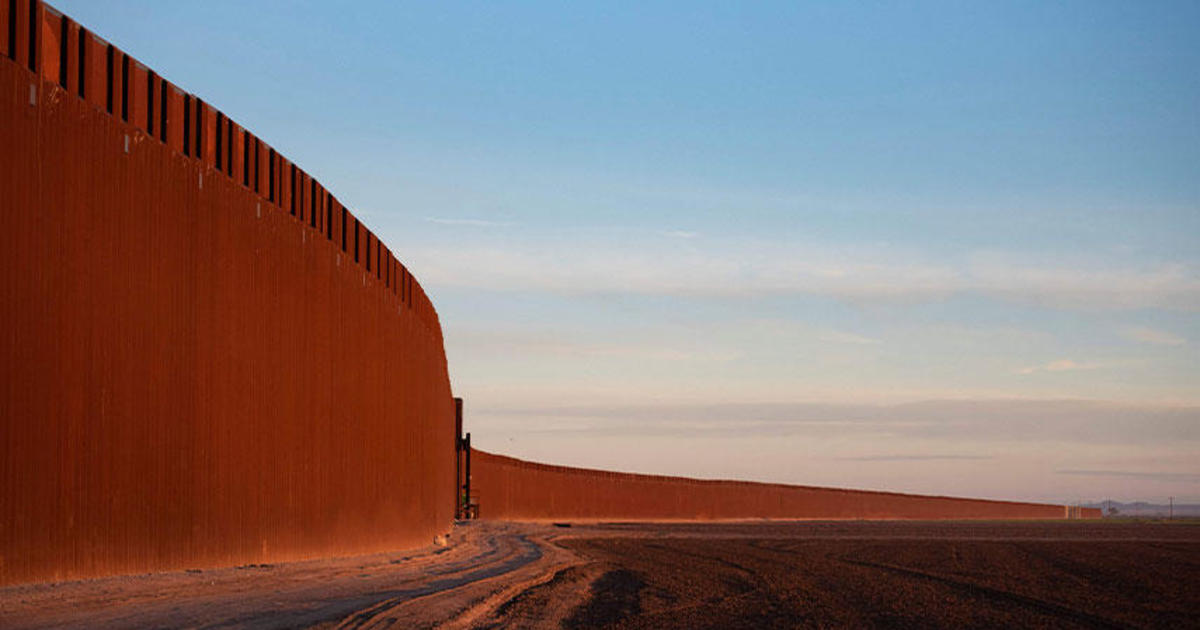McAllen, Texas — The Biden administration made an announcement in South Texas on Wednesday, revealing that it had waived 26 federal laws to permit border wall construction. This marks the administration’s first use of a powerful executive power, which was frequently employed during the Trump presidency.
The Department of Homeland Security (DHS) posted the announcement on the U.S. Federal Registry, providing limited details about the construction in Starr County, Texas. This area is part of a heavily patrolled Border Patrol sector that has experienced high rates of illegal entry. According to government data, the Rio Grande Valley Sector, which includes 21 counties, has recorded approximately 245,000 illegal entries in this fiscal year alone.
“There is an urgent need to construct physical barriers and roads near the U.S. border to prevent unlawful entry,” stated Alejandro Mayorkas, the DHS secretary, in the notice.
The waiving of federal laws, including the Clean Air Act, Safe Drinking Water Act, and Endangered Species Act, allows the DHS to proceed with the construction funded by a congressional appropriation in 2019. These waivers bypass time-consuming reviews and potential lawsuits challenging violations of environmental laws.
Starr County, characterized by its hilly ranchlands, is located between Zapata and McAllen, Texas. It is home to approximately 65,000 residents spread across about 1,200 square miles, which includes part of the Lower Rio Grande Valley National Wildlife Refuge.
Although the announcement did not include maps, U.S. Customs and Border Protection (CBP) disclosed the project in June and solicited public comments in August. A map of the additional construction, which could extend up to 20 miles from the existing border barrier system, was shared. The project will start south of the Falcon Dam and extend past Salineño, Texas.
County Judge Eloy Vera raised concerns about erosion and the presence of arroyos (creeks) in the area. Environmental advocates also expressed worry, as the structures will cut through public lands and habitats of endangered plants and species like the Ocelot.
“Building a wall through this habitat will disrupt wildlife migrations, destroy a significant portion of wildlife refuge land, and represents a step backwards for the borderlands,” warned Laiken Jordahl, a southwest conservation advocate for the Center for Biological Diversity.
During the Trump administration, approximately 450 miles of barriers were constructed along the southwest border between 2017 and January 2021. Texas Governor Greg Abbott resumed these efforts after President Biden halted them at the beginning of his term.
Despite the DHS’s decision on Wednesday, which seemingly contradicts the Biden administration’s stance on border wall construction, CBP asserted that the project aligns with a 2021 proclamation. The agency emphasized its commitment to protecting cultural and natural resources while implementing sound environmental practices.
The announcement sparked political debates, particularly among Democrats who are grappling with an increase in migrants entering through the southern border in recent months. U.S. Representative Henry Cuellar opposed the construction, stating that a border wall is an ineffective solution.
On the other hand, proponents of the border wall view the waivers as an opportunity to shift policy. Dan Stein, president of the Federation for American Immigration Reform, suggested that the administration should immediately begin constructing a wall across the border to prevent illegal traffic from shifting to other areas.
Denial of responsibility! Vigour Times is an automatic aggregator of Global media. In each content, the hyperlink to the primary source is specified. All trademarks belong to their rightful owners, and all materials to their authors. For any complaint, please reach us at – [email protected]. We will take necessary action within 24 hours.


